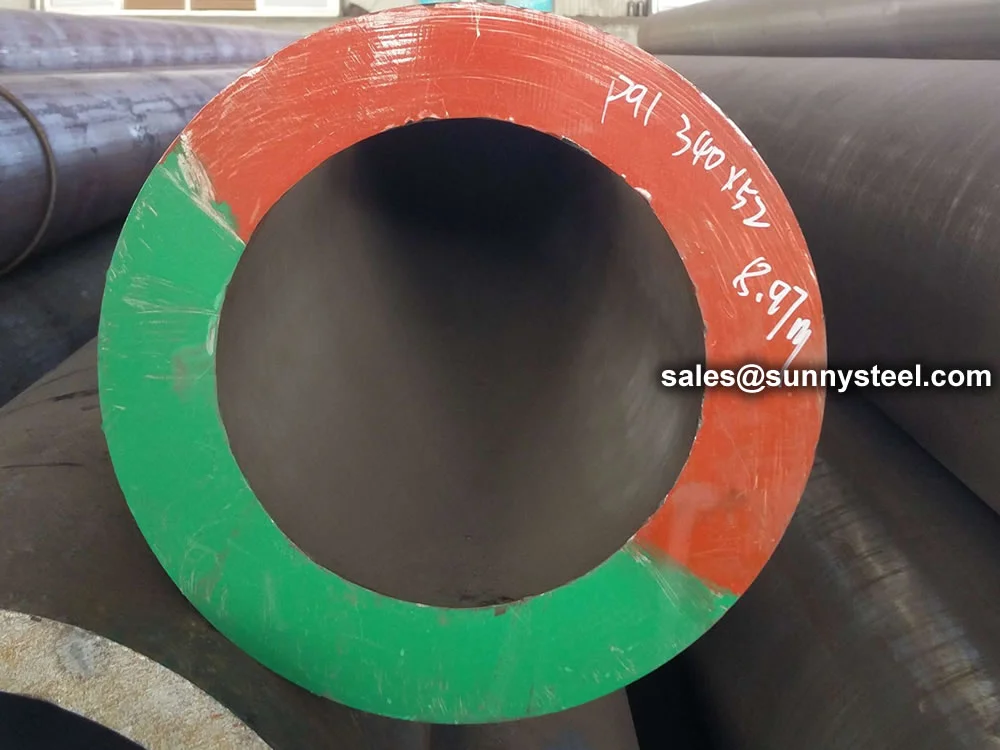
High-temperature Performance
Explore astm a335 grade p91 seamless alloy steel pipes, engineered for exceptional strength and resistance in high-temperature, high-pressure environments.
High-temperature Performance
Explore astm a335 grade p91 seamless alloy steel pipes, engineered for exceptional strength and resistance in high-temperature, high-pressure environments.
ASTM A335 Grade P91 Seamless Alloy Steel Pipe is a high-performance ferritic alloy steel pipe designed for high-temperature and high-pressure applications. With a composition of 8.00–9.50% chromium and 0.85–1.05% molybdenum, it offers excellent oxidation resistance and creep strength, making it ideal for power plants, refineries, and petrochemical industries.
The P91 pipe undergoes rigorous heat treatment processes, including normalizing, quenching, and tempering, to achieve a martensitic-ferritic microstructure. This enhances its mechanical properties, providing a minimum tensile strength of 585 MPa and a yield strength of 415 MPa. Its high creep resistance ensures long-term performance in temperatures up to 625°C.
Available in sizes ranging from NPS 1/4” to 24” and wall thicknesses from Schedule 40 to XXH, the ASTM A335 P91 pipe is suitable for bending, flanging, and welding operations. Surface treatments such as varnishing, 3LPE, or FBE coatings can be applied to enhance corrosion resistance.
Compared to other alloy steel grades like P22 or P5, P91 offers superior strength and oxidation resistance, allowing for reduced wall thickness and improved thermal efficiency. Its durability and reliability make it a preferred choice for critical components in boilers, heat exchangers, and superheaters.
| Element | Composition (%) |
|---|---|
| Carbon (C) | 0.08–0.12 |
| Manganese (Mn) | 0.30–0.60 |
| Phosphorus (P) | ≤0.02 |
| Sulfur (S) | ≤0.01 |
| Silicon (Si) | 0.20–0.50 |
| Chromium (Cr) | 8.00–9.50 |
| Molybdenum (Mo) | 0.85–1.05 |
| Vanadium (V) | 0.18–0.25 |
| Niobium (Nb) | 0.06–0.10 |
| Nitrogen (N) | 0.03–0.07 |
| Property | Value |
|---|---|
| Tensile Strength (MPa) | 585 min |
| Yield Strength (MPa) | 415 min |
| Elongation (%) | 20 min |
| Hardness (HBW) | ≤250 |
| Grade | UNS Designation | Chemical Composition % | |||||||
|---|---|---|---|---|---|---|---|---|---|
| P91 Type 1 | K91560 | C | Mn | P | S | Si | Ni | Cr | Mo |
| 0.08-0.12 | 0.30-0.60 | 0.020 | 0.010 | 0.20-0.50 | 0.40 max | 8.00-9.50 | 0.85-1.05 | ||
| V | N | Al | Cb | Ti | Zr | Sn | Sb | ||
| 0.18-0.25 | 0.030-0.070 | 0.02 max | 0.06-010 | 0.01 max | 0.01 max | _ | _ | ||
| P91 Type 2 | K91560 | C | Mn | P | S | Si | Ni | Cr | Mo |
| 0.08-0.12 | 0.30-0.50 | 0.020 | 0.005 | 0.20-0.40 | 0.40 max | 8.00-9.50 | 0.85-1.05 | ||
| V | N | Al | Cb | Ti | Zr | Sn | Sb | ||
| 0.18-0.25 | 0.035-0.070 | 0.02 max | 0.06-0.10 | 0.01 max | 0.01 max | 0.010 max | 0.003 max | ||
ASTM A335 P91 Type 1 & Type 2 have subtle differences mainly in elements Mn, S, Si, N, Sn and Sb content, and Type 2 has stricter requirements on element content than Type 1. P91 type 1 and 2 shall have a hardness within the range of 190 to 250 [HBW] or 196 to 265 [HV] or 91 HRBW to 25 HRC.
P91 (9Cr-1Mo-V-Nb) is a high-performance ferritic alloy steel designed for high-temperature service in power plants and petrochemical systems.
Maintains mechanical performance up to 600°C, allowing reduced wall thickness in steam piping and headers.
Withstands aggressive thermal and chemical environments, supporting advanced boiler design.
Offers up to 10× longer fatigue life compared to conventional steels, reducing shutdowns and failures.
Requires controlled heat treatment to maintain tempered martensitic structure and creep strength.
Chromium, molybdenum, vanadium, and niobium enhance strength, oxidation resistance, and weldability.
Widely used in superheaters, reheaters, HRSGs, and headers with compatible welding consumables.
P91 alloy steel has become the industry standard for high-efficiency power plant systems. It delivers exceptional performance in demanding thermal environments and is essential for systems operating under high pressure and temperature conditions.

ASTM A335 chrome moly pipes are widely used in various industries due to their excellent mechanical properties and resistance to high temperatures.
Used in high-temperature and high-pressure boiler tubes, superheaters, and reheaters for efficient energy conversion.
Applied in refineries and petrochemical plants to transport high-temperature hydrocarbons.
Used in facilities handling corrosive and high-temperature fluids during various chemical reactions.
Employed in nuclear power plants for critical piping systems resistant to extreme heat and pressure.
Used in furnaces and heat exchangers due to excellent resistance to high temperature and thermal fatigue.
Applied in high-pressure steam systems in industries like pulp and paper where thermal durability is essential.
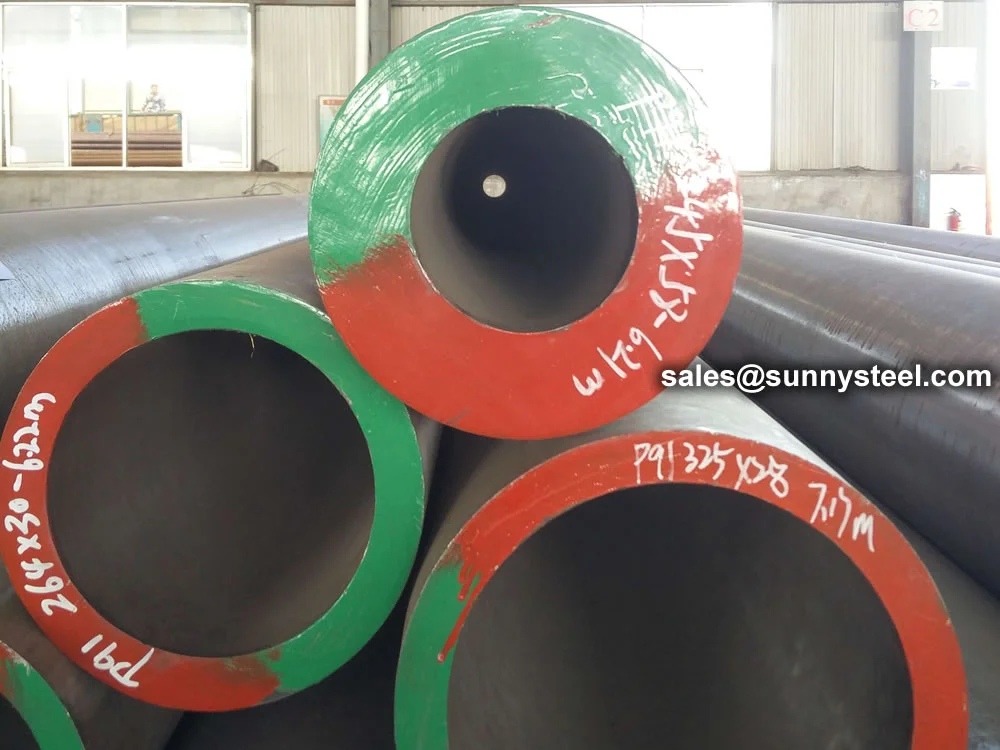
Astm a335 p91 alloy steel seamless pipe offers exc...
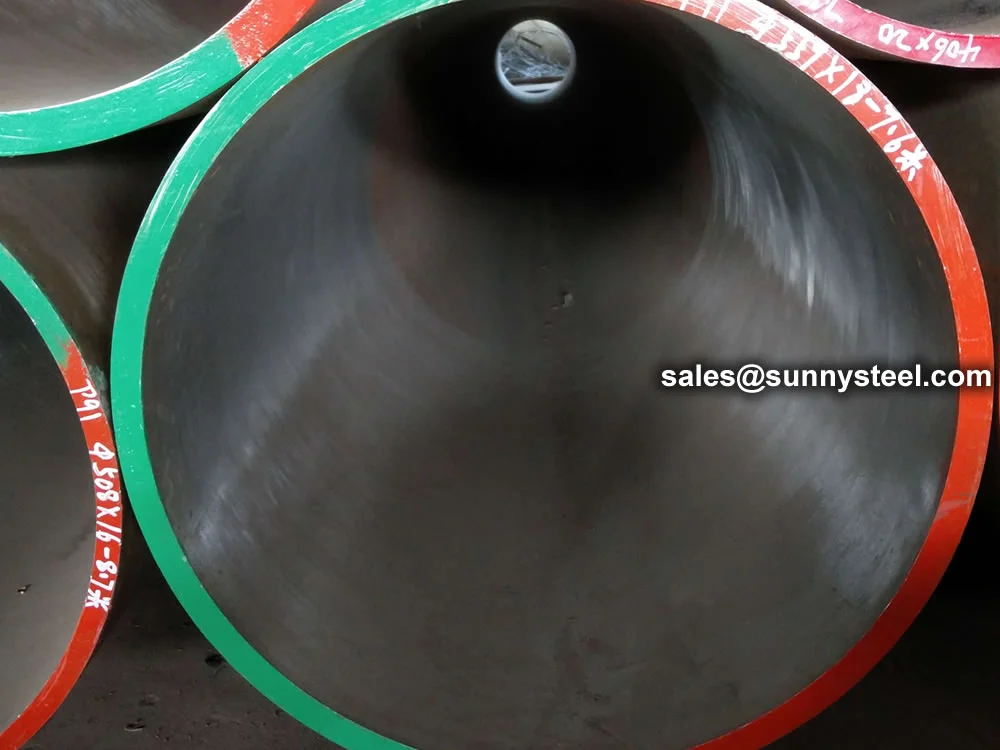
Astm a335 p91 chrome moly pipe delivers exceptiona...
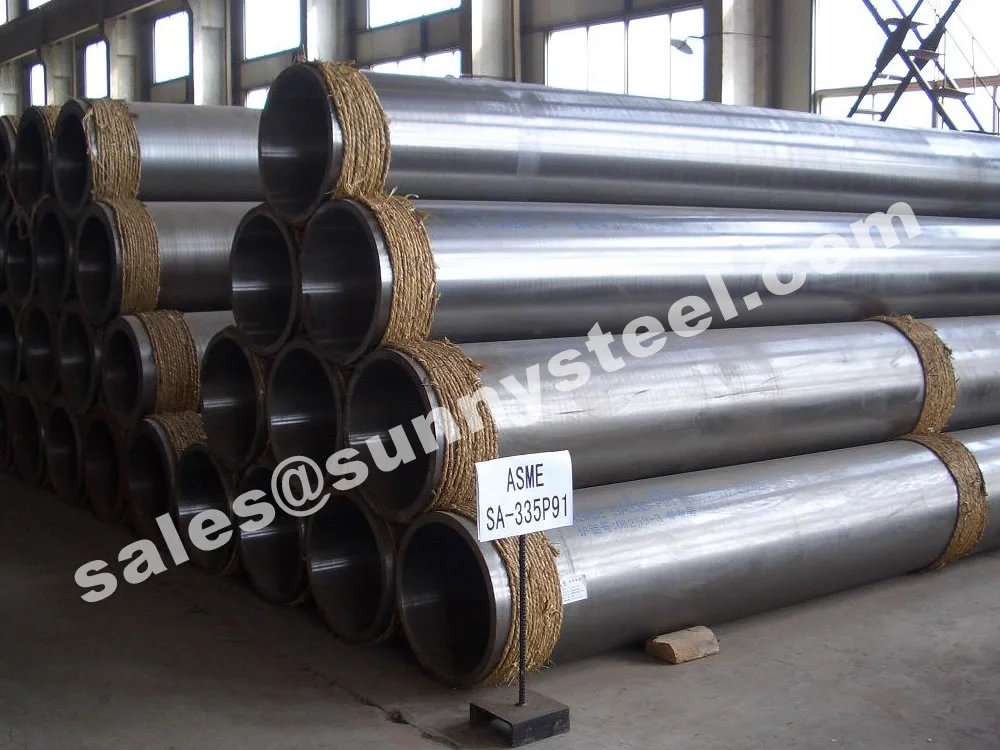
Astm a335 p91 alloy steel pipe spool offers superi...
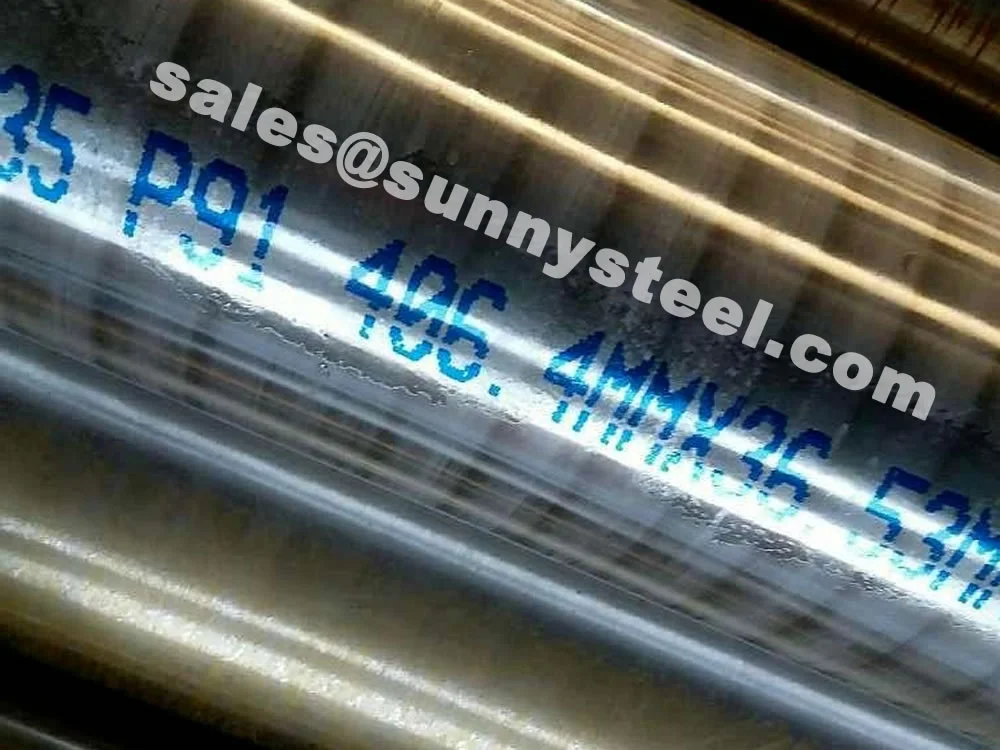
Alloy steel a335 p91 pipes deliver superior creep ...
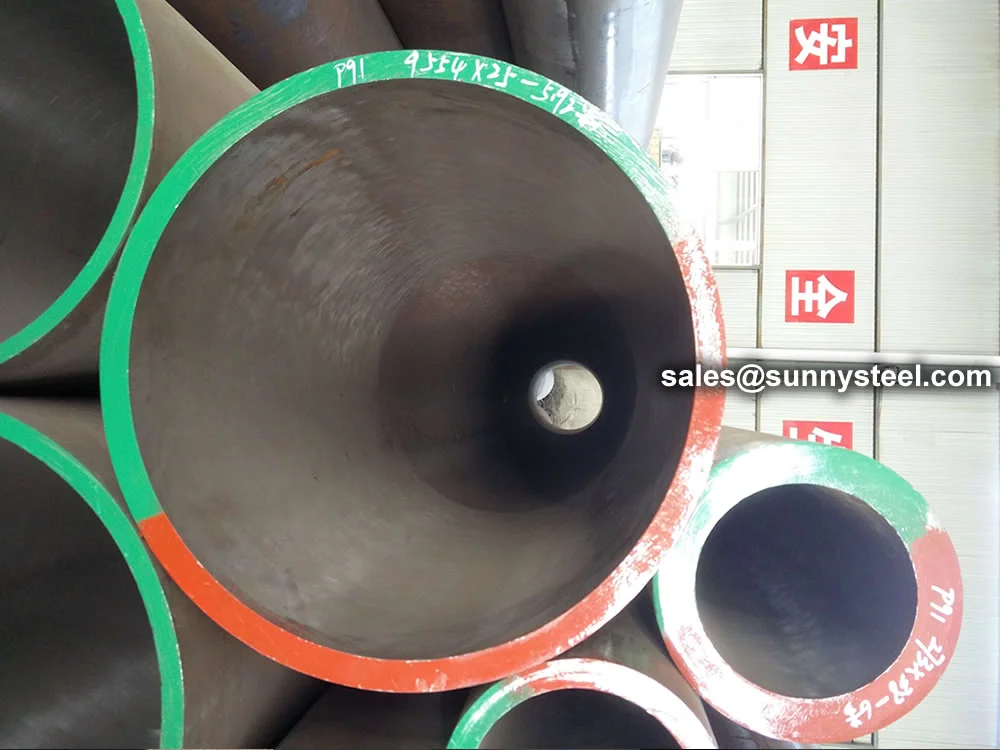
Astm a335 p91 nace pipe offers superior creep stre...